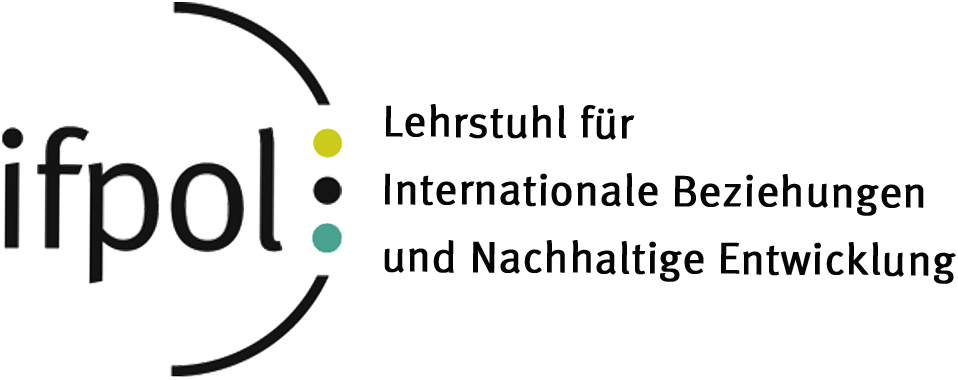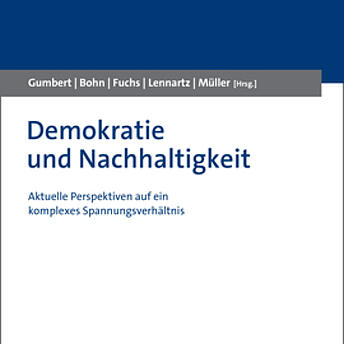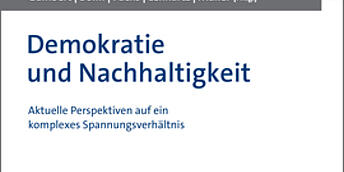

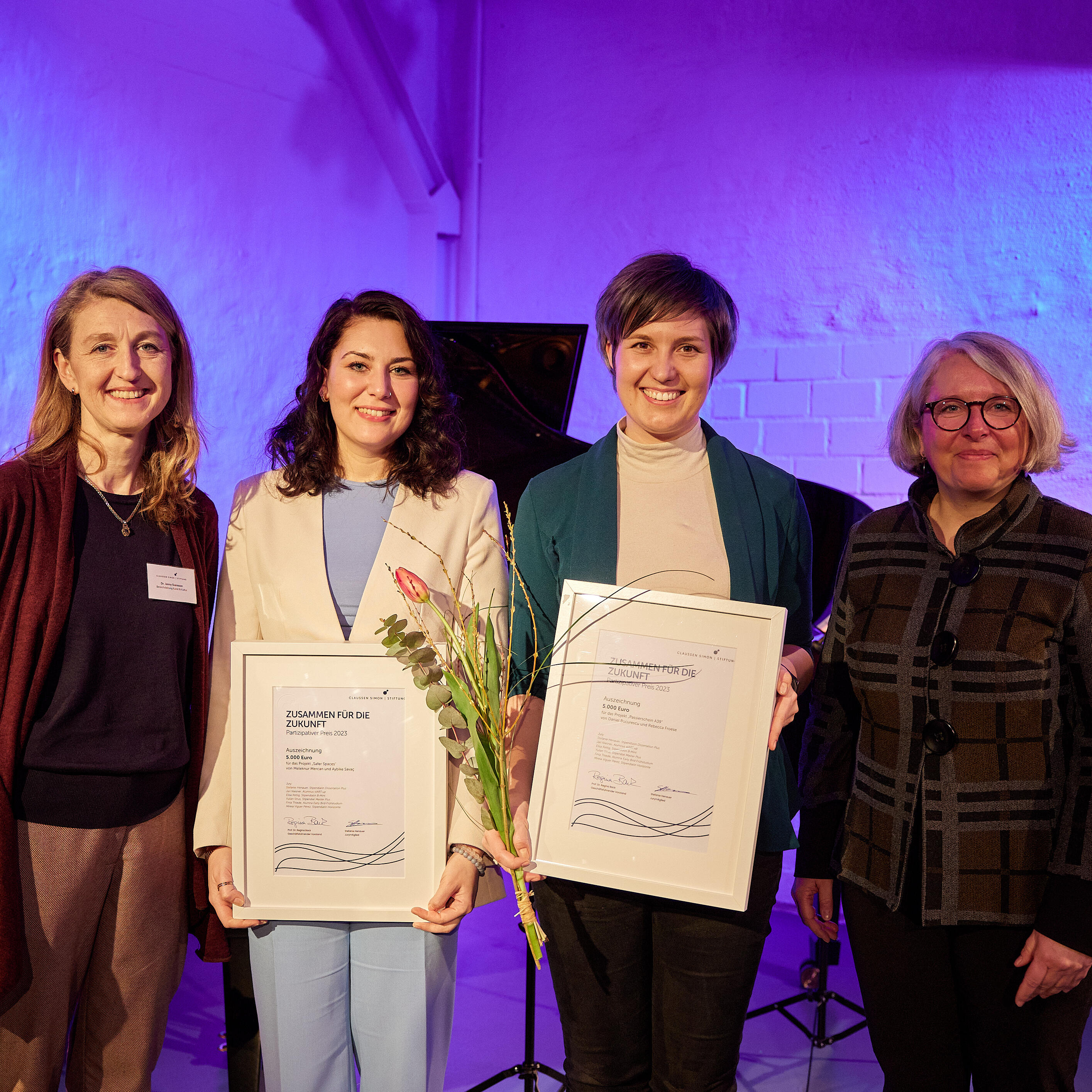
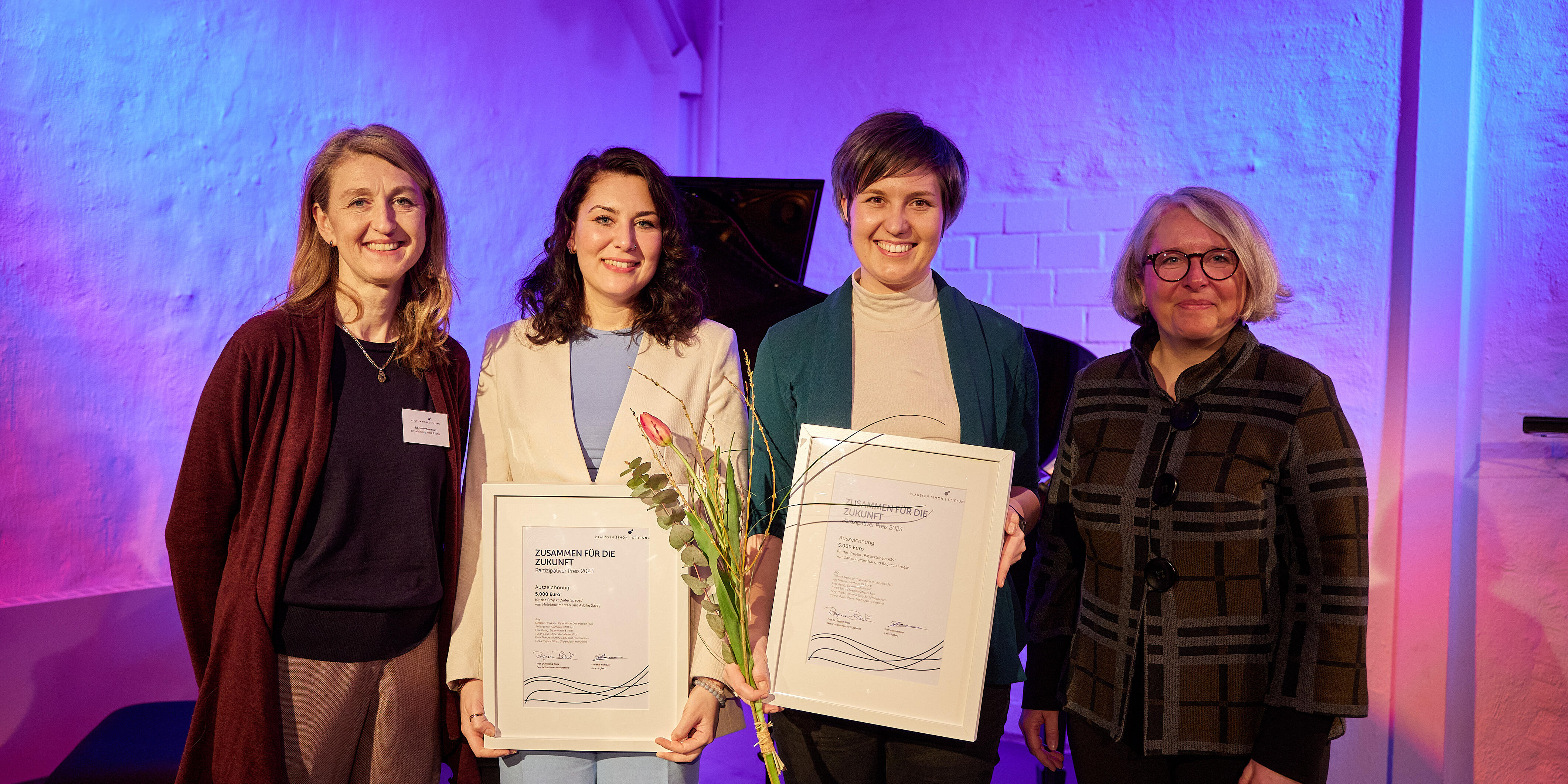
Research Fellow Rebecca Froese has been awarded the participatory prize "Together for the Future" of the Claussen-Simon Stiftung
Start of the research project INCITE-DEM - "Inclusive citizenship in a world in transformation"
On March 6 and 7, Prof. Doris Fuchs takes part in the kick-off event of the research project INCITE-DEM in Lisbon. The project, in which the ZIN spokesperson is leading a sub-project together with Prof. Oliver Treib and Prof. Bernd Schlipphak, is supported by the Horizon Programme of the EU and will run in the period March 2023 - February 2026. | Continue
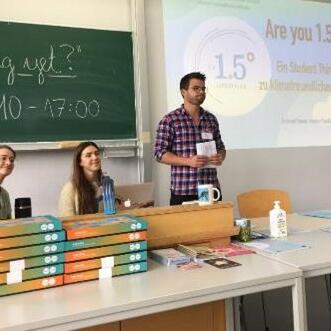
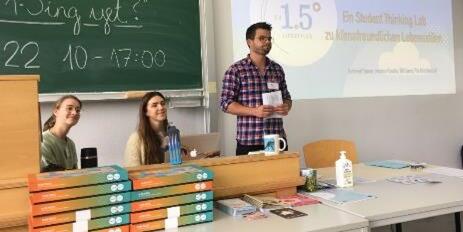
Are you 1.5ing yet? – A Student Thinking Lab on climate-friendly lifestyles
The Chair's secretariat is on summer break until 15 August!
The secretariat of the Chair of International Relations and Sustainable Development is not staffed until 15 August 2022. In urgent cases, please contact: nachhaltigkeit@uni-muenster.de. We will then contact you as soon as possible.
14th ESEE conference in Pisa
From June 14 to 17, Prof Doris Fuchs and faculty members Halliki Krenin, PhD and Victoria Hasenkamp participated in the 14th conference of the ESEE (European Society for Ecological Economics) in Pisa. The conference with an economic focus took place under the motto "Will Achilles catch up with the tortoise? It's high time for transformative action on sustainability" and pointed out the imperative need for society-wide change towards sustainability in different contexts in order to break out of the vicious circle of currently largely unsustainable reality that political actors are pursuing. Especially the engagement of science and civil society was discussed in terms of transfomative, innovative approaches. | Read more
First reflections on the concept of consumption corridors
In this first scientific reflection on the concept of consumption corridors, scientist Dr. Minna Kanerva concludes that consumption corridors are an important tool for the transition to a sustainable economic system. Further, she concludes that the concept is a next necessary step for policy in the present. We invite you to read the full article: https://imperia.uni-muenster.de/imperia/md/content/fuchs/minna_s_perspective.docx
Publication of the report "How socio-ecological transformation can succeed"
In the context of the online conference "How socio-ecological transformation can succeed", the expert report of the expert group "World Economy and Social Ethics" with the same title was presented on June 16, 2021, in which Professor Doris Fuchs participated. On this occasion, Prof'in Fuchs presented her view on the interaction of faith-based actors in the socio-ecological transformation.

Job position
Presentation on bioeconomy at the ICEC 2020
The university of Freiburg is hosting the Interdisciplinary Circular Economy Conference 2020 from November 30th to December 3rd. On Tuesday chair members will share insights gained in the BIOCIVIS project.
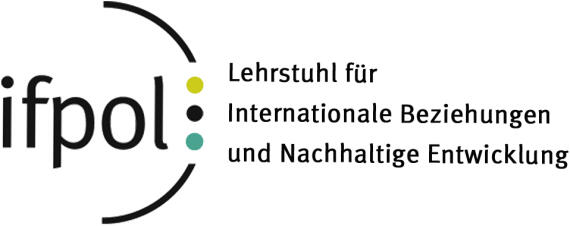

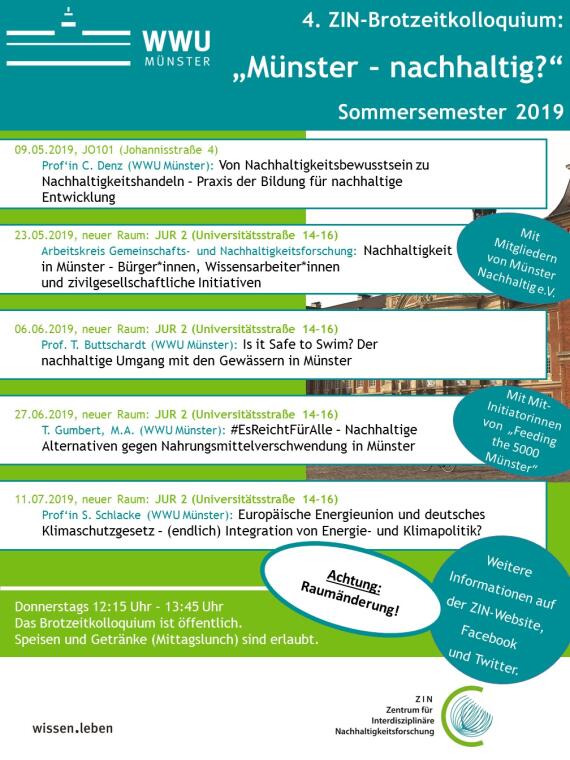

Interdisciplinary conference “Transformation zur Nachhaltigkeit. Hindernisse – Wege - Strategien”, 4th – 5th October, Münster
Fair and Global Environmental Policy with Prof. Doris Fuchs
Meeting of the working group „Sustainable Consumption“ of the German Committee for Sustainability Research in Future Earth with Prof. Doris Fuchs
Prof. Doris Fuchs attends 6th Degrowth-conference in Malmö
What are the central concepts and perspectives of sustainable consumption? What concrete progress is there in its implementation?

Several contributions submitted to the Third International SCORAI – Conference in Copenhagen
Doris Fuchs as part of Germany’s sustainable academic landscape
Student Journal interviews Prof. Doris Fuchs
„Green Faith“? – Prof. Doris Fuchs and Prof. Katharina Glaab investigate the Role of Faith-based Actors in the Global Sustainable Development Discourse

Call for Action: Scientists warn against environmental degradation and its consequences

New blog about conflicts and natural resources
Sustainable Consumption in Germany – fair, ecological and collectively responsible?
„Hot or cool“? - Experts discuss ways to slow down global warming
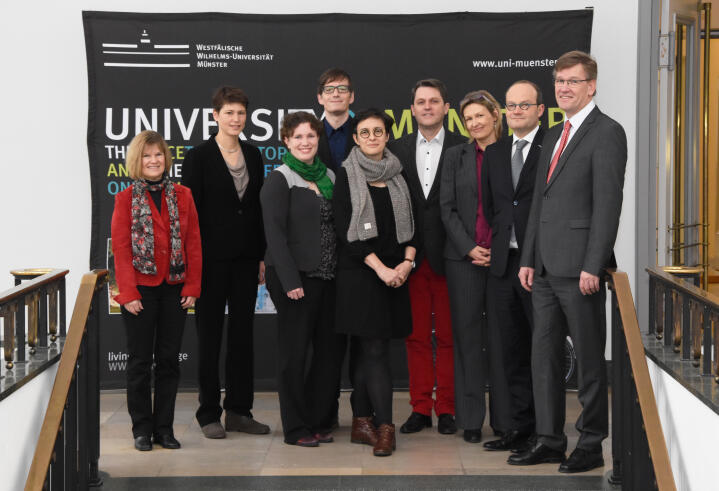
Looking for the right measure of sustainable consumption
Becoming a sustainable city with help of the ZIN
Professor Doris Fuchs interviewed by German radio broadcast „WDR3 – Kultur am Mittag“
New course of lectures dealing with risks and potentials of technological innovation and transformation for ecological and social sustainability

ZIN 'Breadtime' Colloquium
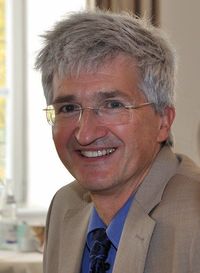
Resilience as leading term for the organization of the Great Transformation. Ethical Analyses on a shimmering term

Baltic University Programme III PhD Students Training: Interdisciplinary-Multicultural-International
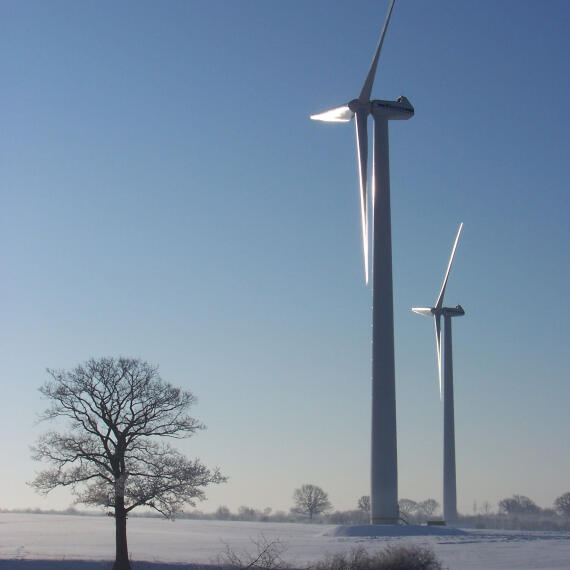
Massive Open Online Course (MOOC) on Climate Negotiations and Climate Justice – open for anyone interested!
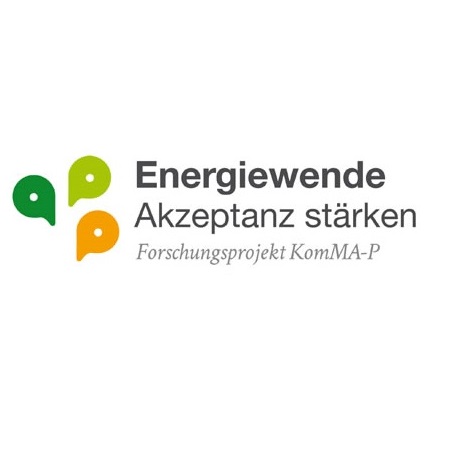
KomMA-P: 'Energiewende' - Strengthen Acceptance

Current Courses in winter term 2015/2016

Research Sabbatical of Prof. Doris Fuchs PhD.
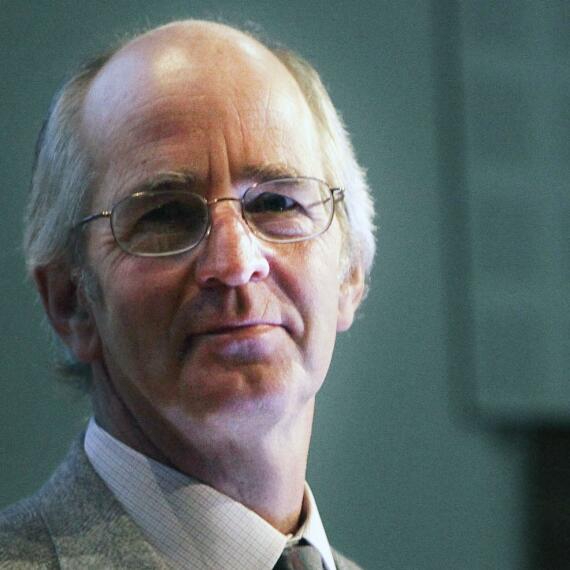
Talk Thomas Princen: "Ending the Fossil Fuel Era: The Politics, the Ethics, the Strategies"

INTERVIEW WITH PROF FUCHS ON "POSTWACHSTUMSÖKONOMIE" AND THE "GOOD LIFE" (BY RADIO Q)

COURSES IN SUMMER TERM 2015

CHAIR'S RESEARCH FELLOWS AT CINEMA "KURBELKISTE"
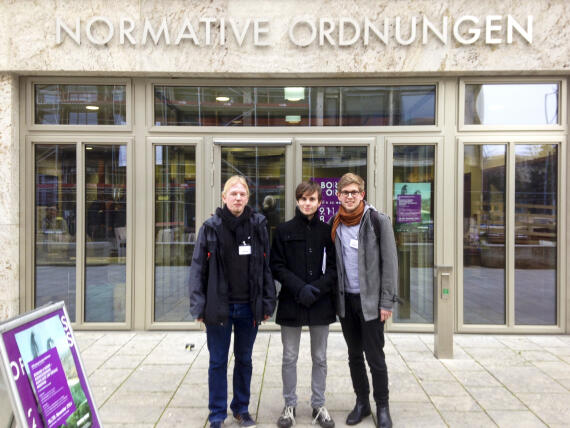
PARTICIPATION OF MUENSTER'S POLITICAL SCIENCE STUDENTS AT YOUNG ACADEMICS' CONFERENCE IN FRANKFURT A.M.

Online-Plattform: "Umwelt- und Gesellschaftsverträgliche Transformation des Energiesystems"

RENAMING OF THE CHAIR: "INTERNATIONAL RELATIONS AND SUSTAINABLE DEVELOPMENT"
Presentation on bioeconomy at the ICEC 2020
The university of Freiburg is hosting the Interdisciplinary Circular Economy Conference 2020 from November 30th to December 3rd. On Tuesday chair members will share insights gained in the BIOCIVIS project.

Job position
Publication of the report "How socio-ecological transformation can succeed"
In the context of the online conference "How socio-ecological transformation can succeed", the expert report of the expert group "World Economy and Social Ethics" with the same title was presented on June 16, 2021, in which Professor Doris Fuchs participated. On this occasion, Prof'in Fuchs presented her view on the interaction of faith-based actors in the socio-ecological transformation.
First reflections on the concept of consumption corridors
In this first scientific reflection on the concept of consumption corridors, scientist Dr. Minna Kanerva concludes that consumption corridors are an important tool for the transition to a sustainable economic system. Further, she concludes that the concept is a next necessary step for policy in the present. We invite you to read the full article: https://imperia.uni-muenster.de/imperia/md/content/fuchs/minna_s_perspective.docx
14th ESEE conference in Pisa
From June 14 to 17, Prof Doris Fuchs and faculty members Halliki Krenin, PhD and Victoria Hasenkamp participated in the 14th conference of the ESEE (European Society for Ecological Economics) in Pisa. The conference with an economic focus took place under the motto "Will Achilles catch up with the tortoise? It's high time for transformative action on sustainability" and pointed out the imperative need for society-wide change towards sustainability in different contexts in order to break out of the vicious circle of currently largely unsustainable reality that political actors are pursuing. Especially the engagement of science and civil society was discussed in terms of transfomative, innovative approaches. | Read more
The Chair's secretariat is on summer break until 15 August!
The secretariat of the Chair of International Relations and Sustainable Development is not staffed until 15 August 2022. In urgent cases, please contact: nachhaltigkeit@uni-muenster.de. We will then contact you as soon as possible.


Are you 1.5ing yet? – A Student Thinking Lab on climate-friendly lifestyles
Start of the research project INCITE-DEM - "Inclusive citizenship in a world in transformation"
On March 6 and 7, Prof. Doris Fuchs takes part in the kick-off event of the research project INCITE-DEM in Lisbon. The project, in which the ZIN spokesperson is leading a sub-project together with Prof. Oliver Treib and Prof. Bernd Schlipphak, is supported by the Horizon Programme of the EU and will run in the period March 2023 - February 2026. | Continue



